Six ways to change your diet as you age
These simple dietary tweaks can help support your brain and heart
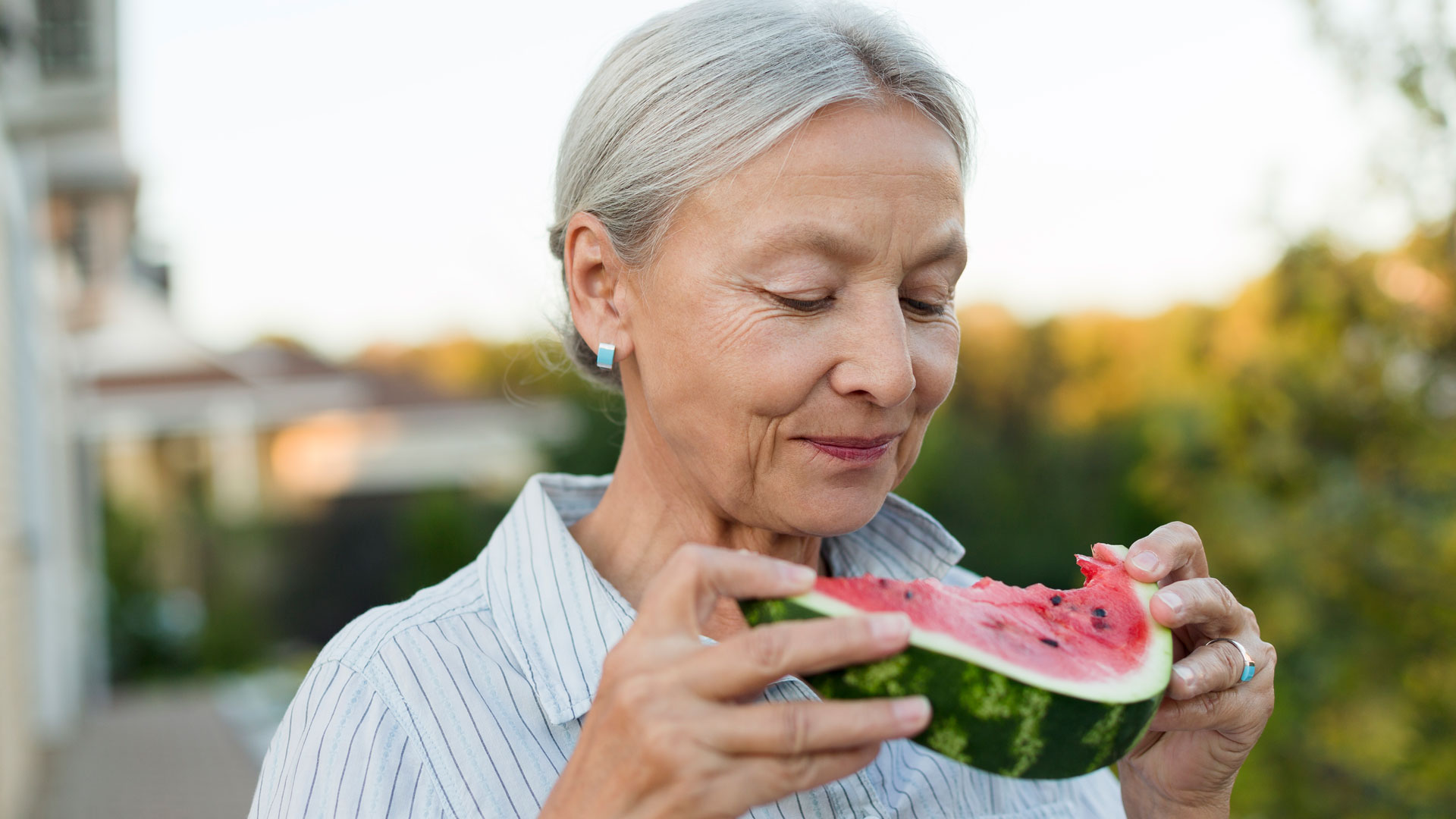

Good nutrition is important regardless of your age. But for older adults, diet can make a big difference between aging gracefully and a more rapid decline.
This is because, as we age, everything from our metabolism to our brain slows down.
The good news is there are some simple tweaks you can make to your diet to support healthy aging, from eating nutrient-rich foods to supplements to support an active lifestyle. Here are six steps to get you started.
1. Stay hydrated
As you age, you may be more prone to dehydration because your sense of thirst decreases, as well as the amount of water in your body. Not to mention, certain prescription medications can have a diuretic effect, which means that the body is flushing fluids away quickly. This can take a toll on overall hydration.
The consequences? Dehydration can lead to confusion or urinary tract infections, which is why it’s super important to stay hydrated – arm yourself with the best water bottle so you can take regular sips throughout the day. Try to limit your alcohol and caffeine content, and opt for foods with a high water content too.
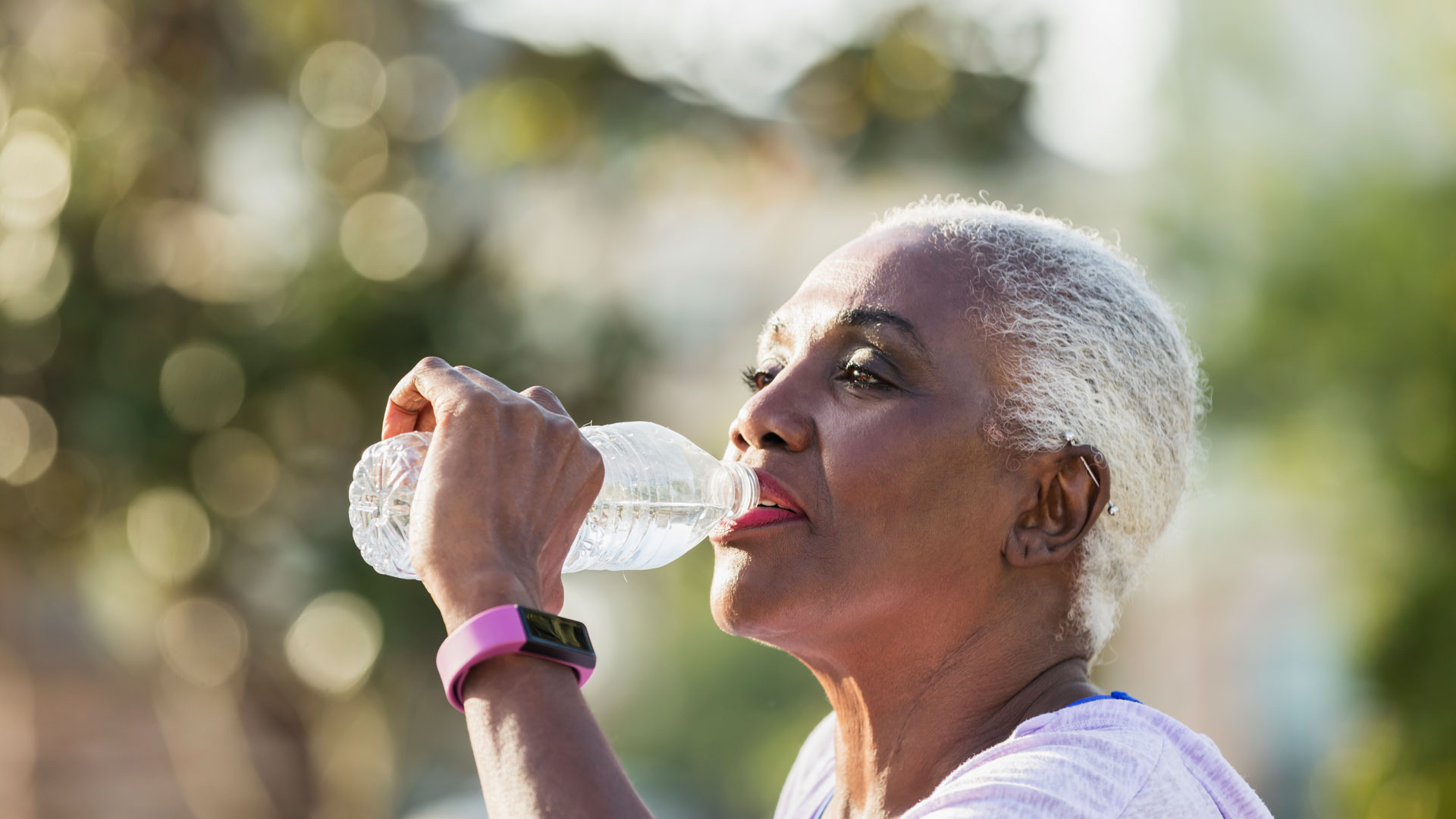
2. Choose calcium-rich foods for bone health
To keep your bones strong, include lots of calcium-rich foods in your diet, like sardines (with bones), milk, yogurt, and green leafy vegetables. As you age, your bone density lowers, so you need calcium to build bone density to lower the risk of osteoporosis and prevent fractures and injury. Men aged 51 years and older should be aiming for 1,000 mg of calcium per day, with women requiring 1,200 mg.
3. Supplementary support
Supplementation is a simple addition you can make to your diet to support through aging. Why? Because sometimes it’s difficult to obtain all the nutrients you need through your diet alone, so you might consider topping up some specific nutrients, such as Vitamin D, via supplementation.
Seven Seas’ JointCare range is formulated to help support an active lifestyle (1), and includes omega-3, which is important for overall health, supporting the heart, brain and eyes (2). Seven Seas Joint Care range also contains vitamin D, which supports the normal function of muscles and the immune system.
Remember to get enough vitamin D too, as this is needed to help your body to absorb calcium properly. The NHS recommends a daily intake of 10 μg of vitamin D per day, especially during the autumn and winter months, since the primary source of vitamin D is sunlight. However, oily fish, fortified mushrooms and fortified plant-based milks, and breakfast cereals are good dietary sources.
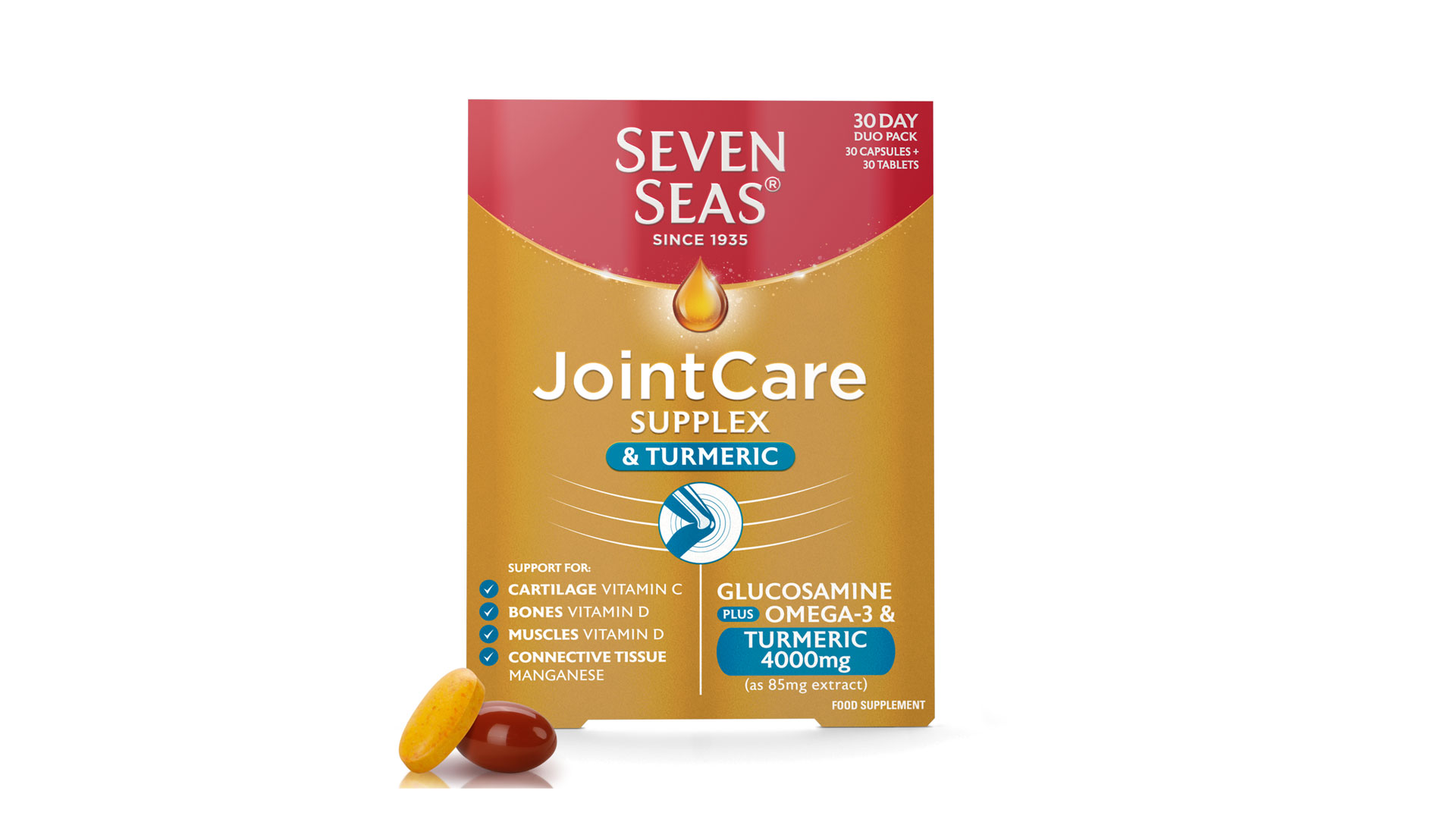
4. Prioritize protein
Research in Contemporary Clinical Trials suggests that up to one third of older adults aren’t meeting their protein requirements due to reduced appetite, dental issues, impaired taste, swallowing problems, and limited financial resources. Yet aging bodies actually need more protein to maintain muscle mass and strength.
A 2018 study in the Journals of Gerontology also followed more than 2,900 seniors over 23 years and found that those who ate the most protein were 30% less likely to become functionally impaired than those who ate the least amount.
So make protein a priority in every meal. ‘Complete’ proteins are those that contain all nine of the essential amino acids – the building blocks of protein that the body cannot produce itself. These tend to be animal-based proteins, such as chicken, lamb, beef, fish, eggs, and pork. For ‘incomplete’ plant-based proteins, opt for quinoa, legumes, tofu, tempeh, and other grains – but remember to mix and match, to ensure you’re getting a complete amino acid profile over the course of the week.
5. Don’t fear fat
It might seem intuitive to opt for low-fat foods, but ensuring you obtain sufficient amounts of healthy fats is really important for aging. In particular, a daily intake of 250 mg EPA and DHA omega-3 fatty acids helps to support normal heart function, while DHA also helps to support normal vision and brain function (2).
You can find omega-3 fats in oily fish, such as salmon, sardines, and anchovies. If you don’t eat two to three portions of oily fish per week, you can get some omega-3s from walnuts, hemp seeds, chia seeds, and some vegetables.
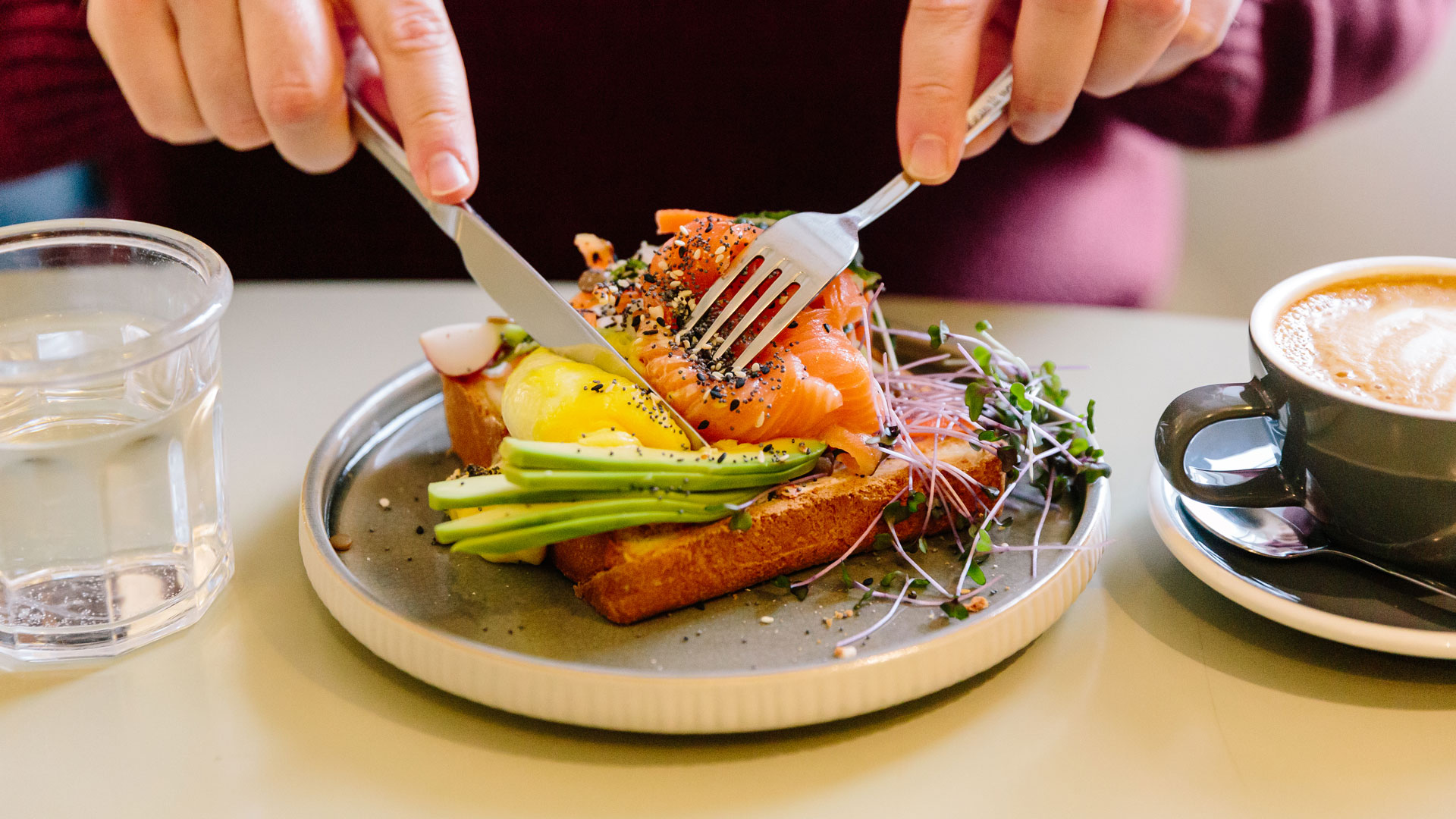
6. Focus on fiber
Constipation is more common in later life due to age-related changes in the gastrointestinal tract. Consuming a high-fiber diet with plenty of water can help to keep things running smoothly, as well as helping to control blood sugar levels, and lower cholesterol.
Dietary guidelines for adults aged 51 years and older recommend a daily consumption of 30g of fiber.
So where can you get fiber-rich foods from your diet? Opt for wholegrain cereals or oatmeal for breakfast, and plenty of whole fruits and vegetables, nuts, seeds, and legumes. Although it’s worth noting that adding too much fiber into your diet too quickly can cause problems. Add a few fiber-rich foods each day until you are meeting your requirements.
Food supplements must not replace a varied, balanced diet and a healthy lifestyle.
(1) Vitamin D which supports normal functioning muscles and normal bones. Vitamin C for the normal formation of collagen for the normal function of cartilage. Manganese for the normal formation of connective tissues. Copper contributes to maintenance of normal connective tissues.
(2) A daily intake of 250mg EPA (Eicosapentaenoic Acid) and DHA (Docosahexaenoic Acid) helps support normal heart function. 250mg DHA daily helps support normal vision and brain function.
Get the Fit&Well Newsletter
Start your week with achievable workout ideas, health tips and wellbeing advice in your inbox.

Alice Ball is the Health Editor for Future Plc. With more than five years of experience working in health journalism, she's covered everything from why we should 'kill' the calorie, to destigmatizing the menopause. Alice also specializes in nutrition and supplements. She's a self-confessed running fanatic, currently in training for her fifth marathon. She enjoys documenting her progress on her Instagram account, @aligoesrunning. Alice works across a number of Future's sites, including LiveScience and Fit&Well.
-
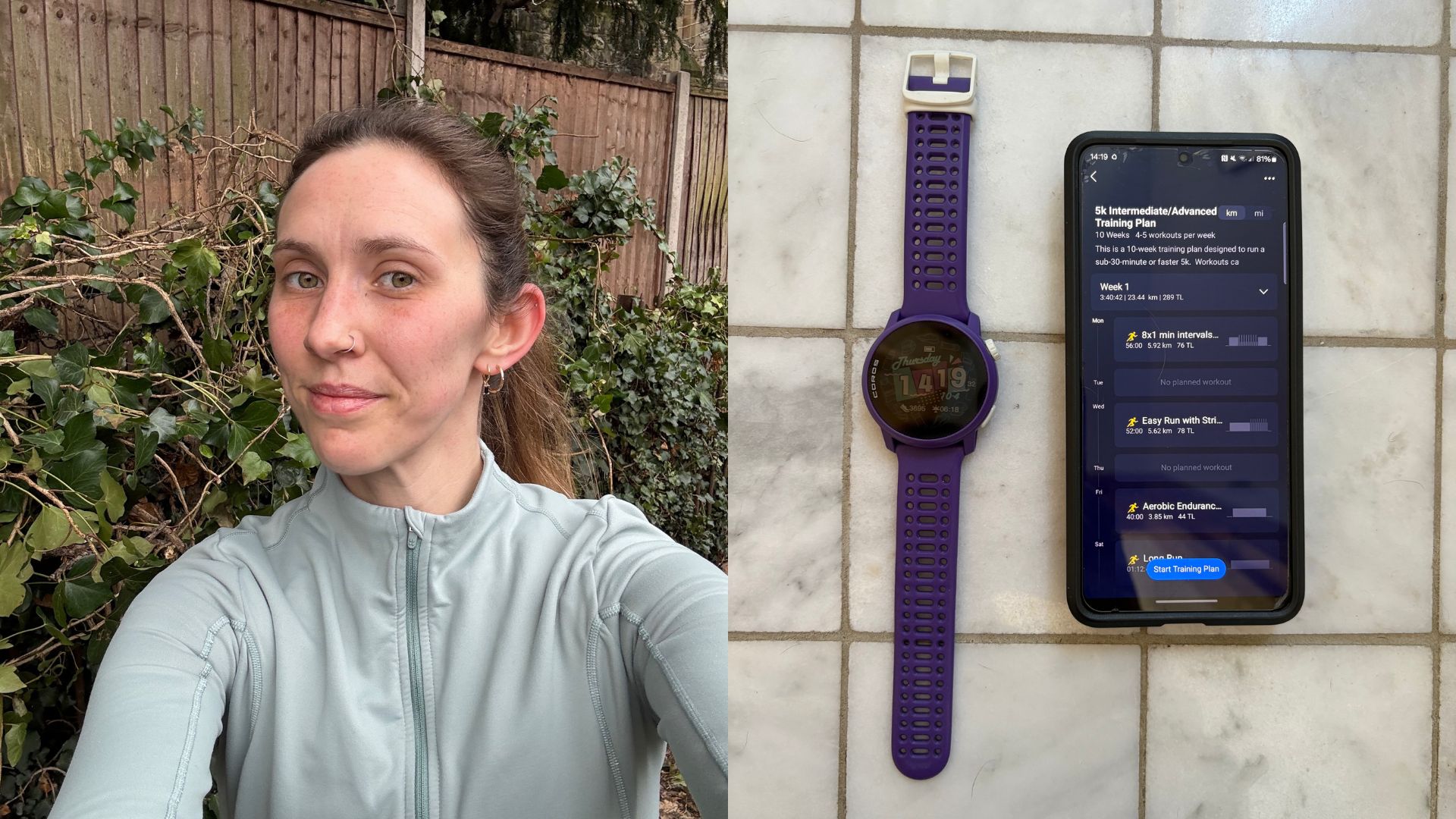 This is the exact running plan I followed for two months to finally get my 5K run time under 30 minutes
This is the exact running plan I followed for two months to finally get my 5K run time under 30 minutesAnd it helped me fall in love with running again
By Ruth Gaukrodger Published
-
 I increased my step count back to 10,000 a day after time off—here’s how I did it sustainably
I increased my step count back to 10,000 a day after time off—here’s how I did it sustainablyIt took me five weeks to get back to the ideal range
By Lou Mudge Published